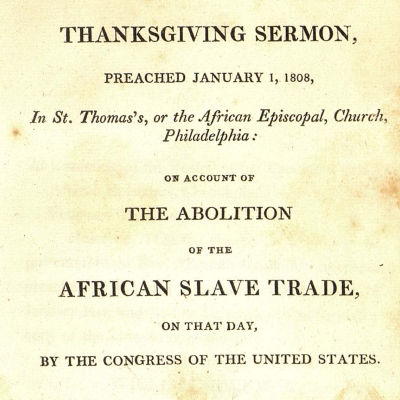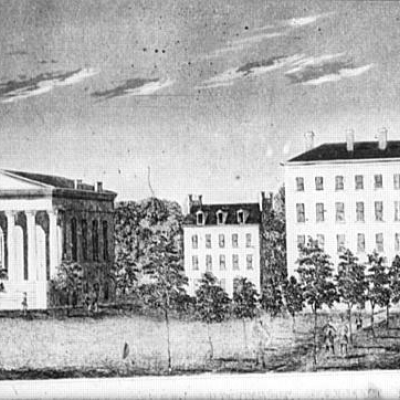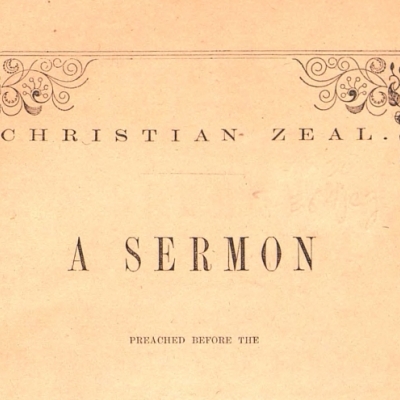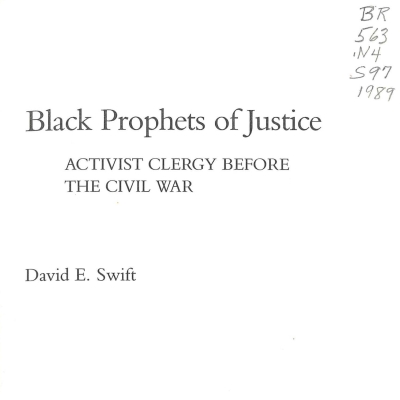In the antebellum era, religious leaders often spoke out against slavery, both in their sermons and as they participated in church governance. Some of the most powerful religious voices were those of the African American ministers who were directly affected by slavery and the system of white supremacy that dominated all aspects of American life. Absalom Jones, James Pennington, and Henry Highland Garnet were highly respected Protestant ministers who condemned chattel slavery both from the pulpit and through their work as church leaders, teachers, community organizers, and activists.
Absalom Jones delivered a sermon of “Thanksgiving” after the Act Prohibiting the Importation of Slaves took effect in 1808. Though he condemned slavery and the terrible suffering of enslaved people, he did not go as far as to advocate directly for abolition. Forty-five years later, as tension between pro-slavery and anti-slavery factions was increasing dramatically, James Pennington delivered a sermon to the Third Presbytery of New York on the topic of Christian zeal. In his sermon, Pennington pointed out that Presbyterians owned 80,000 enslaved people, but he stopped short of overtly criticizing the Presbyterian Church for its weak support of anti-slavery principles. In 1865, just before the end of the Civil War, Henry Highland Garnet spoke before the House of Representatives in honor of the newly passed Thirteenth Amendment. Garnet’s sermon presented a stirring condemnation of the slave system as well as a remarkably forward-looking description of what full equality for African Americans would look like. Lest anyone think the work was done after the passing of the Thirteenth Amendment, Garnet eloquently told them otherwise.
All three men had been born into slavery. Pennington and Garnet escaped to freedom— Garnet as a young teenager with his family, and Pennington on his own, as an adult— and Jones was manumitted by his owner when he was nearly 40. The experience of enslavement informed each man’s approach to his ministry, and to his work to end slavery and help support fellow African Americans, both free and enslaved.
Other African American ministers were not born into slavery, but nonetheless worked tirelessly for abolition and social and economic uplift for African Americans. Reverend Peter Williams, Jr. was a ground-breaking Episcopalian minister, the first African American Episcopal minister serving a New York City congregation. In addition to his ministry, Williams co-founded the first black-owned and operated newspaper, Freedom’s Journal. The first senior editor of Freedom’s Journal was Reverend Samuel Cornish, a Presbyterian minister and gifted journalist and editor. Cornish was instrumental in changing public opinion about the colonization movement through his writing and his ministry.




